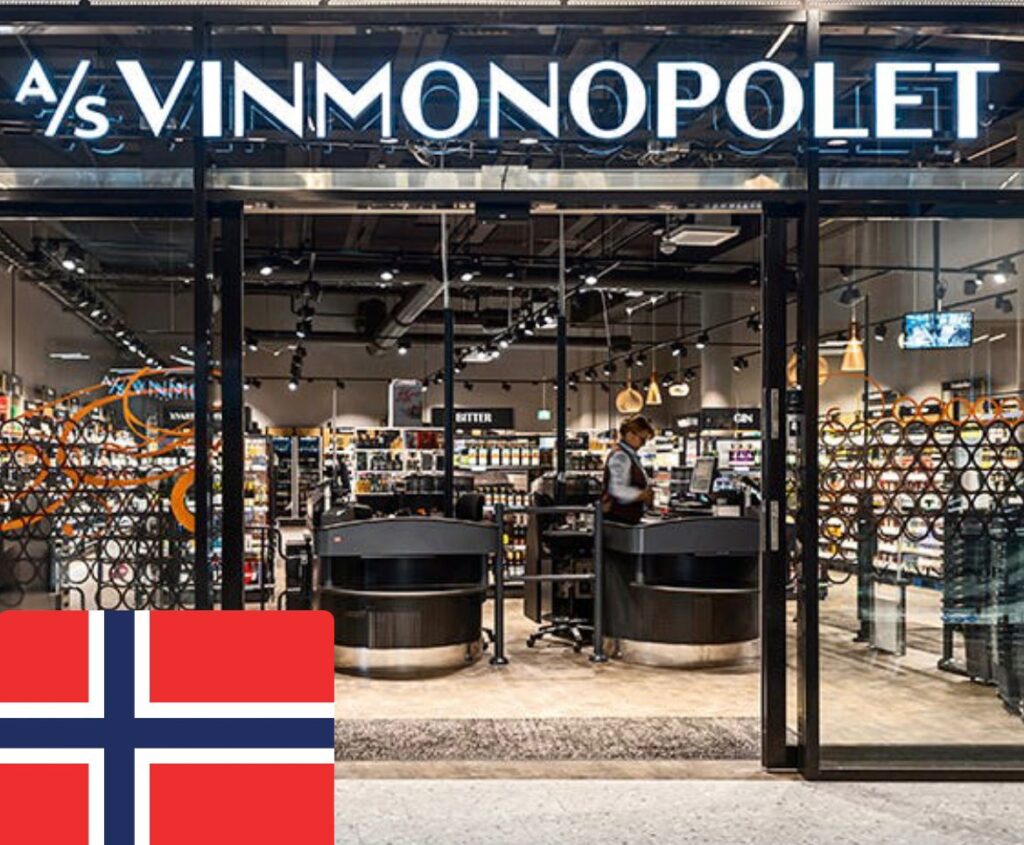In Norway, you cannot buy wine at a regular supermarket. If you want a bottle of wine or spirits stronger than 4.7% alcohol, you have to go to Vinmonopolet. This is the state-owned alcohol shop, and it is the only legal place to buy these kinds of drinks. While this system may seem strict or old-fashioned to some, many Norwegians support it because of how fairly and carefully it works.

The tender system
The first step in choosing wine is the tender. This means Vinmonopolet publishes a public request for a specific type of wine. For example, they might say they are looking for an organic red wine from southern France, or a dry Riesling from Germany, or a budget-friendly sparkling wine for the holiday season.
These tenders are published several months ahead of time, so importers and wine producers have time to prepare. The rules are very specific. They might include details like the grape variety, price level, type of farming (such as organic), packaging, and even what kind of closure the bottle must have (like cork or screw cap). Anyone who can meet the requirements can send in a wine sample to compete.
This open process gives small producers and new wine regions a fair chance to enter the Norwegian market. It’s not just about big global brands—it’s about meeting the standards set in the tender. This way, Vinmonopolet avoids favoritism or behind-the-scenes deals.
The tasting process
After all the wines are submitted, a group of trained wine professionals at Vinmonopolet taste them blind. Blind tasting means the tasters do not know which producer made the wine. They don’t see the label, bottle shape, or brand. All they know is the wine inside the glass.
These tasters judge the wine based on its smell, taste, balance, and how well it fits the tender’s requirements. Only the wines that score highest are selected. This part of the process is strict and detailed, but it helps ensure that the final selection is based on quality and fit—not marketing or name recognition.
This also means that consumers can trust that the wines on the shelf have been professionally judged and chosen for a reason.
Transparency and fairness
One of the things that makes Vinmonopolet different from private alcohol stores in other countries is how transparent it is. All the tenders and results are made public. If a wine wins a tender and is chosen, the importer and product details are published. If a wine does not win, the importer can ask for feedback.
Vinmonopolet also does not take money from wine producers for advertising or promotions. There are no special deals to get better shelf placement. All products are treated equally, and staff are trained to give neutral, honest advice to customers.
There is also a strong focus on ethics and sustainability. Vinmonopolet asks importers to check that the producers they work with follow human rights laws, treat workers fairly, and protect the environment. Some tenders even require organic or fair trade certification.
Why this matters for consumers
Because of this system, customers in Norway can enjoy a wide range of wines from all over the world—many of which are not easy to find in regular stores elsewhere. You’ll find everything from well-known French and Italian labels to lesser-known producers in Georgia, South Africa, Uruguay, and beyond. Vinmonopolet also makes an effort to include alcohol-free wines, organic wines, and eco-friendly packaging.
People living in small towns and rural areas still have access to the same products as those in Oslo. There are over 300 stores across the country, and online ordering with home delivery or pickup makes it even easier to access the full selection.
A different kind of wine market
Vinmonopolet is not trying to sell as much wine as possible. Its goal is to offer good service, educate people about alcohol, and reduce harm. In fact, the company often shares information about responsible drinking and supports campaigns to prevent alcohol abuse.
This careful and balanced approach has made Vinmonopolet one of the most respected alcohol retailers in the world. It’s a rare example of how a state-owned monopoly can work well—protecting public health while still giving people high-quality choices.
Although the system is not perfect, and some people wish for more freedom or lower prices, many Norwegians are proud of Vinmonopolet’s role. It shows that fairness, expertise, and clear rules can create a better way to enjoy wine—one that values quality, not just quantity.